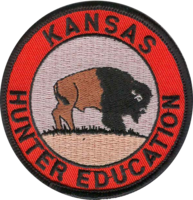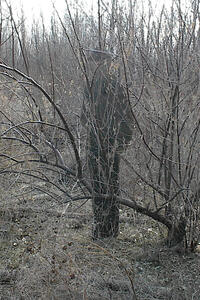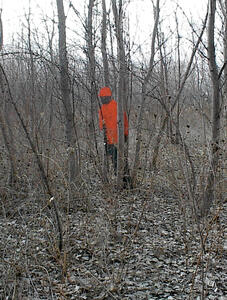General Information
As amended and effective January 1, 2005 Kansas law provides:
Anyone born on or after July 1, 1957 must be certified by an approved course in hunter education before they can hunt in Kansas, except that anyone 15 years old or younger may hunt without hunter education certification provided they are under the direct supervision of an adult 18 years old or older.
Effective July 1, 2014 individuals 16 or older may purchase a two-time purchase deferral of the Hunter Education requirements by purchasing an Apprentice hunting license. Apprentice hunting license holders must hunt under the supervision of a licensed hunter age 18 or older.
Apprentice hunting licenses may be purchased at any Kansas license vendor, and online at GoOutdoorsKansas.com.
Hunter Education Certification issued by any state, Canadian Province, or some foreign jurisdictions are deemed to meet the requirements of Kansas Law.
AGE REQUIREMENT TO BE CERTIFIED: No one under the age of 11 will be certified in Hunter Education. Those under the age of 11 may take the course, provided space is available; however, the student will be required to take the course again for certification after turning 11.
Answers to some common questions
If I have Hunter Education certification from another state do I have to take the Kansas course?
Answer: No, all state, provincial and some foreign countries’ certifications are acceptable for meeting the requirements of Kansas law.
I was grandfathered in my home state and did not need to take Hunter Education. Do I still need Hunter Education to hunt in Kansas?
Answer: Yes. Anyone born on or after July 1, 1957, except as exempted by law, must have taken an approved Hunter Education course before hunting in Kansas.
Who is exempt?
Answer: Anyone, resident or non-resident, under age 16 may hunt without Hunter Education provided they are under the direct supervision of an adult age 18 or older.
Anyone, resident or non-resident, 16 or older may purchase up to two Apprentice hunting licenses, which exempt the license holder from the Hunter Education requirement for the year the license is valid. The Apprentice hunting license holder must hunt under the supervision of an adult. After the second Apprentice hunting license expires, Hunter Education is required for the purchase of subsequent Kansas hunting licenses.
Is an Apprentice license or other purchased exemption from another state valid in Kansas?
Answer: No.
If I have served or are serving in the armed forces, am I required to have Hunter Education certification?
Answer: Yes.
- The law (K. S. A. 32-920) grants only two exceptions: for those under 16 years old hunting under the supervision of an adult; and for those 16 or older under the provisions of the Apprentice hunting license.
- Military training and experience are only related to Hunter Education training as they both pertain to safe gun handling. The Hunter Education Course covers much more than just safe gun handling and meets the national standards and objectives necessary for reciprocity with other states.
I took a National Rifle Association hunter safety course prior to 1973. Is that acceptable for meeting the Kansas Hunter Education requirement?
Answer: Yes BUT you must have the original card issued by the NRA. There are no records existing for NRA courses so there is no way to issue a duplicate. If you have an original NRA card we will issue a numbered Kansas duplicate at no charge.
Must I have Hunter Education to bowhunt in Kansas?
Answer: Anyone required to have Hunter Education by law, must have it regardless of the tool of the hunt used.
Is bowhunter education required to bowhunt in Kansas?
Answer: No.
I have a concealed carry permit. Do I still need Hunter Education?
Answer: Yes, if you meet the requirements of law.
I am an experienced hunter with many years of experience. Do I need Hunter Education?
Answer: Yes, if you meet the requirements of law.
There isn't a class in my region, can I take the course in another region?
Answer: Yes, you can take any course that fits your schedule.












